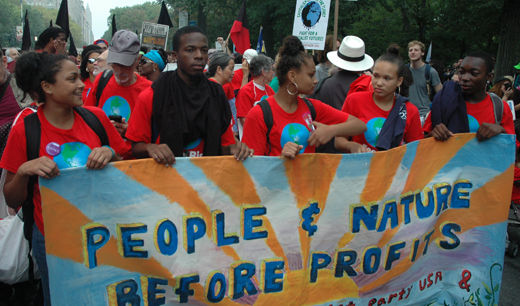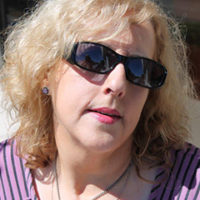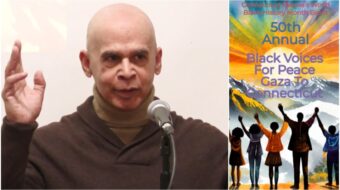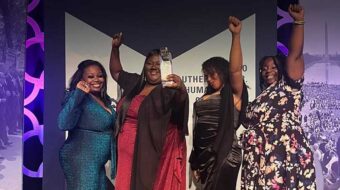
I live in a working-class neighborhood of houses that reflect their owner/renter’s lives – struggling, getting by, doing very well. The folks going in and out reflect the diverse profile of this Central Texas town.
Where I work, in a public library, it’s all out there to see on a daily basis, whether the patrons are toddlers or elders, homeless or well-landed. They’re wearing a wild array of sarongs, Confederate gofer caps, power suits, Dallas Cowboy tees, grease-spattered overalls, and confident heels. Scarcely more than rags sometimes. Wheelchairs, powerful strides, canes, and shuffles.
I’m lucky that way. I see my fellow citizens in the real range and numbers they inhabit here.
Driving through other neighborhoods in my area, I can find the gated places, upper-class homes, and have even been inside by invitation a home that qualifies as a mansion except that there weren’t a high fence and security guard to protect it.
The trend, however, is for those of means to become more remote, more out of view. Their gates, luxury boxes, first-class sections and elegant resort properties have become impossible to enter, except by invitation.
As the wealth gap in the U.S. widens, the rich exist for us as phantoms. A few of them enter politics or allow themselves to be seen as power brokers. Some become media whores, Trumpian in their inescapability.
Others are clients you see in the course of your service to them, whether as a guard, a waiter, a building contractor, a maid, a nurse or legal secretary. Maybe you witness their luxe life; maybe you don’t.
Many of the wealth class directly benefited from the economic turmoil of recent years in that their investments were protected, their companies bailed out, their tax write-offs unexamined by the IRS, and their offshore palaces free of responsible oversight.
While some of my neighbors lost their homes or had to sell at a loss under severe financial duress, their hard landings contrasted with the soft, mediated workarounds of the opposite end of America’s power switch. I could see the struggles of the former, not so well the triumphs of the latter.
We are rapidly becoming the country of the blind when it comes to actually witnessing the divide between the super-haves and the rest of us.
We can read the statistics and reel at the impact of hidden fortunes on today’s politics, but one thing we can do, those of us who come into contact, is to witness it for the rest of us. Render Facebook images, testimony, and interviews, however cloaked, with those who serve the wealthy so that their living conditions can be documented. Share exposés of ruses used by the wealthy to escape laws and accountability.
In H. G. Wells’ short story “The Country of the Blind,” you read that in such a place the one-eyed man is king. Today, all of us can be ordinary citizens, using the singular eye of smartphones, blogs, and shares, to expand everyone’s vision.
The class war so trumpeted in the media has thus far been largely one-sided. The sides are starkly unequal. Our struggle isn’t only about marches and shouts vs. teargas grenades and police tanks.
It’s also about bearing witness to the divide. If you want people to know what’s going on, show them. There are individuals in this country who made their fortune by manipulating the system. They may well continue to escape justice, but let them not escape our damning eyes.
For those who try so terribly hard not to see the blight in front of them, present evidence inescapable and inexcusable. Kim Kardashian is the current poster child for wretched excess, yet when former presidential candidate Mitt Romney spoke before a private audience saying that about 47 percent of Americans think of themselves as victims, no voter outside that room would have known of this incendiary remark if a worker on the scene hadn’t kept his smartphone handy.
Which of the two, Kardashian and Romney, is more important in our understanding of how the world works? One strips bare in public, the other was revealed as a would-be emperor in the raw.
Our eyes are constantly being pulled to the fleeting, to the ephemeral. That being the unblinking case, let us add to the cavalcade with images, footage and tales reflecting the truth, so that those who cloak themselves in moneyed obscurity no longer escape our united vision.
We have the gift of sight and the will to use it for good. Let us all be witnesses and serve as nonviolent observers for the people’s United Nations.
For more on American inequality, check this out. And how about these revelations about the infamous Koch Brothers?
Photo: Young activists at the People’s Climate March September 21, 2014 New York City. Earchiel Johnson/PW

MOST POPULAR TODAY


Zionist organizations leading campaign to stop ceasefire resolutions in D.C. area

Communist Karol Cariola elected president of Chile’s legislature

Afghanistan’s socialist years: The promising future killed off by U.S. imperialism

High Court essentially bans demonstrations, freedom of assembly in Deep South






Comments